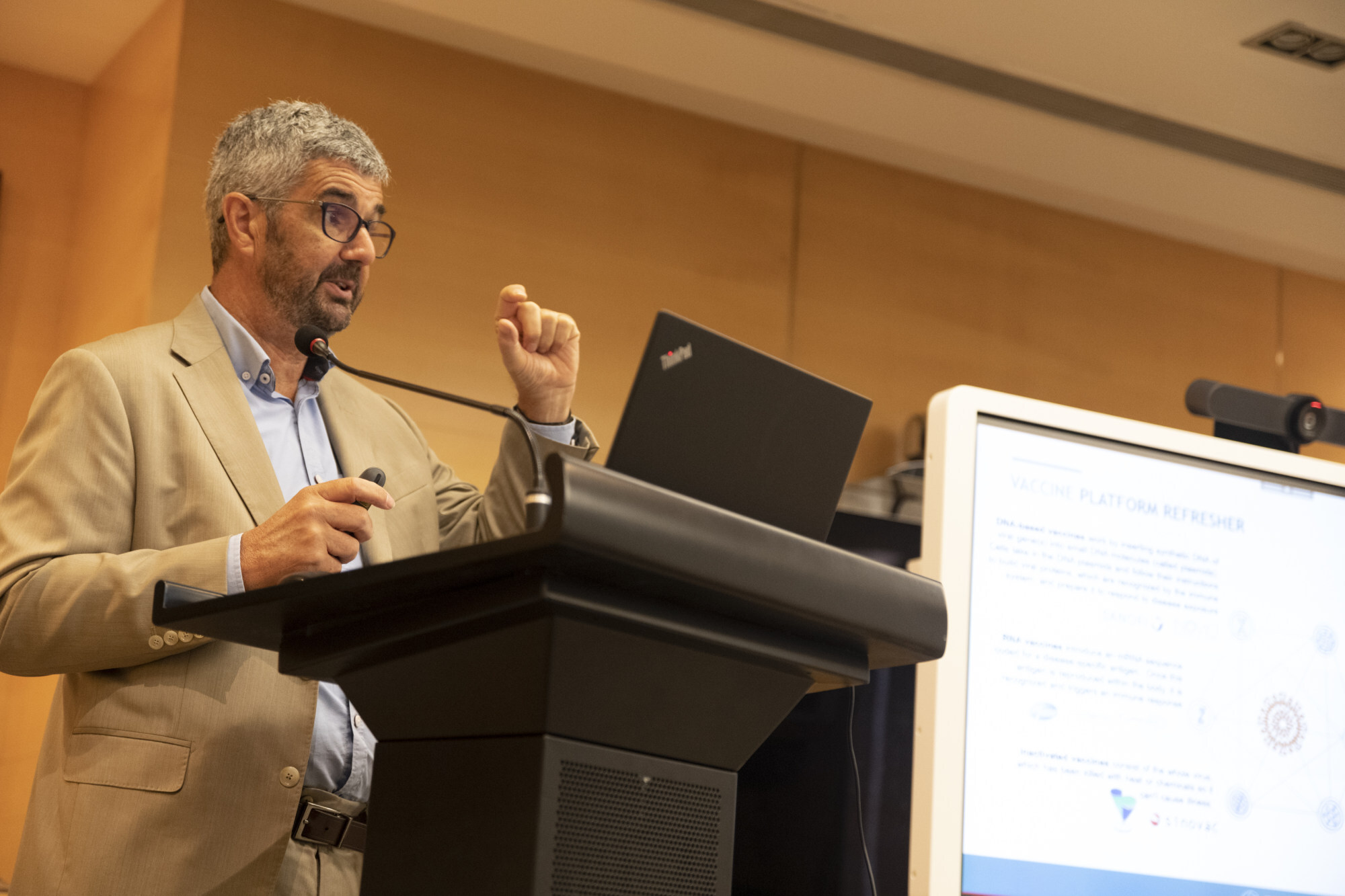
Forget ‘zero Covid’, vaccinate the most vulnerable and learn to live with coronavirus, Hong Kong doctor says
- A 75-year-old is 230 times more likely to die from Covid-19 or its complications than a 20-year-old, and an 85-year-old 600 times more likely, David Owens says
- While ‘zero Covid’ was the best strategy initially, we have to learn to live with Covid-19 and vaccinate those who most need it, as Singapore is doing, he says
Herd immunity from the coronavirus has been widely touted as the holy grail – if we reach a 70 per cent vaccination rate then all will be saved and we can hope for life to return to some degree of normality. It’s a message that makes family doctor Dr David Owens recoil.
The people we should be vaccinating, he says, are the elderly and the most vulnerable in our communities. He cites Hong Kong government statistics: at present, only 5 per cent of residents in elderly-care homes are vaccinated – and they are the ones most likely to die if they get Covid-19.
A 75-year-old is nine times more likely to end up in intensive care and 230 times more likely to die than a 20-year-old. At 85 years of age, intensive care admission is 15 times more likely and death 600 times more likely.

“It’s incredibly important to get the right message across, but there are cultural issues, belief issues, politics. Across that whole thing, there is a relatively simple message that needs to get out there to encourage and educate people on the need for vaccines,” says Owens.
To be clear, he’s not knocking herd immunity – reaching the point where enough of a population is immune to an infectious disease that it provides indirect protection to the rest. It is a good thing, but we are not going to achieve it with vaccination alone.
Vaccine hesitancy in Hong Kong: assurance, facts, paid days off better than giveaways
Noting the considerable fear around vaccine hesitancy and talk of a need for health checks before taking the vaccine, he sees the public health messaging as focusing on the negative and is alarmed at stories of young people talking their parents and the elderly out of taking the vaccine.
“The messaging has focused on the next wave, protective quarantines, about keeping the disease out, which makes sense, but there’s not really been a positive messaging around the benefits of vaccination. Explain to people we are not trying to get herd immunity, we are trying to stop Granny dying. The disease will come in, we can’t stop it,” Owens says.
In Hong Kong, as elsewhere in the world, politics has impacted public health strategies. After success in terms of elimination at the start of the pandemic, it’s time to evolve and move on from a “zero Covid” strategy, he says.

“Most public health doctors see living with Covid-19 as an inevitability, but Hong Kong has clearly made a decision to continue elimination,” Owens says.
He agrees the “zero Covid” approach was the best strategy in the short term. A recent study in medical journal The Lancet compared the health and economic outcomes of OECD (Organisation for Economic Co-operation and Development) countries that pursued an elimination strategy with those which focused on early mitigation.
Elimination was associated with a 25-fold reduction in population mortality in addition to better measures of economic performance. And that meant Hong Kong citizens were 70 times less likely to die of the virus than those in the United States and Britain.
“I would vaccinate from the most vulnerable down with the mRNA vaccines. Give it to care home residents and staff, to everyone in a prison and residential centre. I’m not a fan of mandatory vaccines – I would be pushing the vaccine much harder in the most vulnerable groups,” says Owens.
What are the coronavirus mRNA vaccines and how do they work?
While other countries might look to Hong Kong to pick up tips in terms of how to eliminate the virus, we can look to other countries in terms of vaccine roll-outs. Singapore has adopted a “living with Covid” approach that is based on high vaccination rates with effective vaccines – BioNTech and Moderna – and a focus on the most vulnerable down.
“Singapore has the benefit of having a strategy and a plan; it’s rational, its logical and they’ve communicated it well. They’ve responded and reacted on the basis of evolving evidence. I think we will learn a lot as we watch Singapore go through this process,” Owens says.

At this stage in the pandemic, Hong Kong has three options:
1 Remain in the elimination phase. But, says Owens: “Lockdown forever isn’t feasible.”
2 Push to get very high vaccination coverage, something Owens sees China looking to do by offering booster jabs with the next generation of vaccines. “The risk here is if we get new variants we will have high levels of infected vulnerable individuals,” he says.
Study on vaccines’ effect on Delta raises hopes for shorter isolation periods
3 Adopt a Singapore model, based on living with Covid-19. “Personally, I think that’s the only strategy,” he says.
Owens stresses that whatever vaccine coverage percentage Hong Kong selects before opening up the city again, “it will only be effective if that covers the most vulnerable”.

